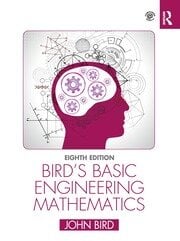1. State the need for Maths with Engineering Studies
I wonder if there is an ideal way of impressing on students hoping to embark on a career in any engineering or scientific field, that they will also require both basic and advanced mathematics knowledge. They may not realise why – so we may need to explain!
A student needs to appreciate that without mathematics to determine principles, calculate dimensions and limits, explore variations, prove concepts, and so on, there would be no mobile telephones, televisions, microwave ovens, computers, or virtually anything electronic. There would be no bridges, roads, skyscrapers, ships, planes, or most things mechanical. There would be no metals beyond the common ones, such as iron and copper, no plastics, no synthetics. In fact, society would most certainly be less advanced without the use of mathematics throughout the centuries and into the future.
2. Provide real-life examples
Share examples of various engineering disciplines and the mathematics needed. Such as those listed below:
Electrical engineers require mathematics to design, develop, test, or supervise the manufacturing and installation of electrical equipment, components, or systems for commercial, industrial, military, or scientific use.
Mechanical engineers require mathematics to perform engineering duties in planning and designing tools, engines, machines, and other mechanically functioning equipment; they oversee installation, operation, maintenance, and repair of such equipment as centralised heat, gas, water, and steam systems.
Industrial engineers require mathematics to design, develop, test, and evaluate integrated systems for managing industrial production processes, including human work factors, quality control, inventory control, logistics and material flow, cost analysis, and production coordination.
Environmental engineers require mathematics to design, plan, or perform engineering duties in the prevention, control, and remediation of environmental health hazards, using various engineering disciplines; their work may include waste treatment, site remediation, or pollution control technology.
Civil engineers require mathematics in all levels in civil engineering - structural engineering, hydraulics and geotechnical engineering are all fields that employ mathematical tools such as differential equations, tensor analysis, field theory, numerical methods, and operations research.
It is simply unescapable; knowledge of mathematics is needed by each of the engineering disciplines listed above, and for many others!
3. Find good teaching material
As a lecturer/instructor and/or presenter of online material, what would be ideal to have available to help you? Finding teaching material/textbook that a lecturer finds acceptable and a student can have the confidence to read and understand is never easy to find. But be under no illusion, this is the crux of a good relationship between teacher and student.
4. Find relevant worked/further problems in engineering
When a suitable text has relevant engineering worked problems followed by further similar questions with answers, then that presents a particularly good way of learning engineering and mathematics. If the text has a website with full solutions to the further questions, then even better. Throw in some multiple-choice questions for a ‘bit of fun’ and the lecturer has the ideal aid for their students.
5. Guide the pace of learning
The student needs to be guided through the material at a sensible pace and have access to the lecturer for any queries not understood. Always be approachable and helpful.
So, if you can find that aid to your teaching that makes your job easier - but much more important, makes learning for the student possible. It is worth the search.
Best of luck!
New Textbooks from John Bird
Bird's Basic Engineering Mathematics
March 01, 2021 by Routledge
ISBN: 9780367643676
Paperback
480 Pages
Bird's Higher Engineering Mathematics
March 26, 2021 by Routledge
ISBN: 9780367643737
Paperback
934 Pages
Bird's Engineering Mathematics
March 16, 2021 by Routledge
ISBN: 9780367643782
Paperback
758 Pages
More from John Bird
Mathematics Pocket Book for Engineers and Scientists
October 17, 2019 by Routledge
ISBN: 9780367266523
Paperback
570 Pages
Newnes Engineering Science Pocket Book
December 02, 2019 by Routledge
ISBN: 9780367447229
Paperback
656 Pages
Science and Mathematics for Engineering
October 10, 2019 by Routledge
ISBN: 9780367204747
Paperback
576 Pages
Mechanical Engineering Principles
September 11, 2019 by Routledge
ISBN: 9780367253240
Paperback
388 Pages
Bird's Comprehensive Engineering Mathematics
June 11, 2018 by Routledge
ISBN: 9780815378143
Paperback
1226 Pages








